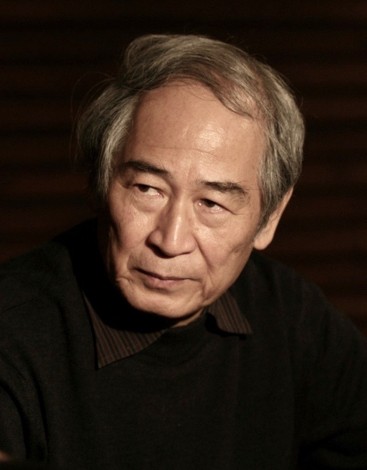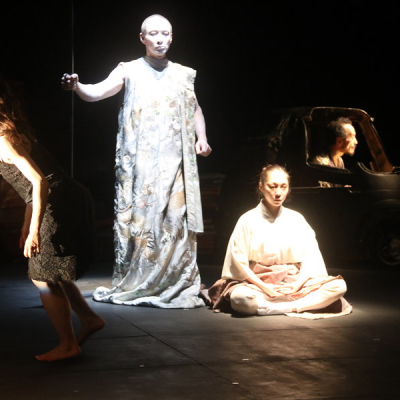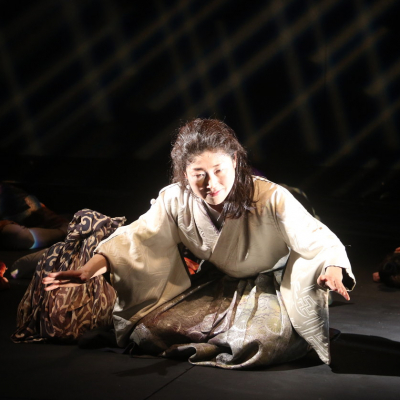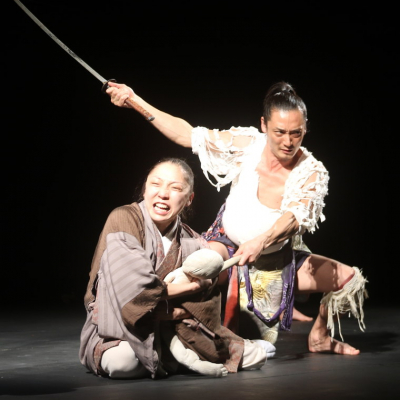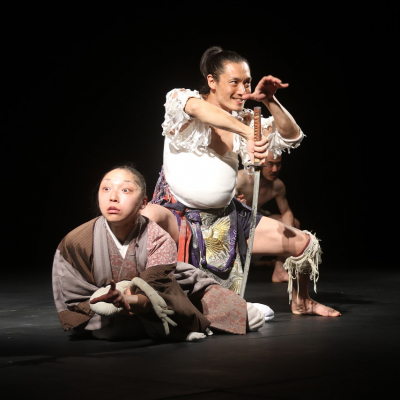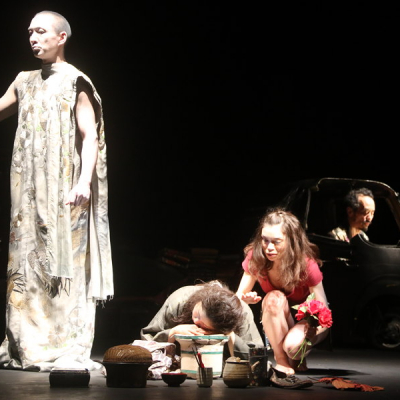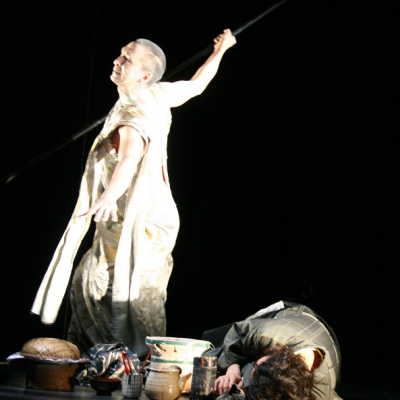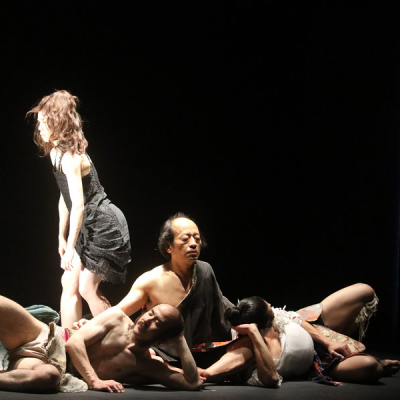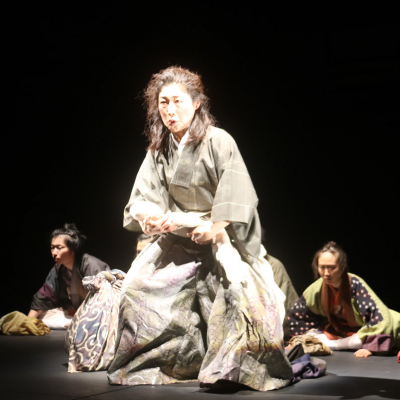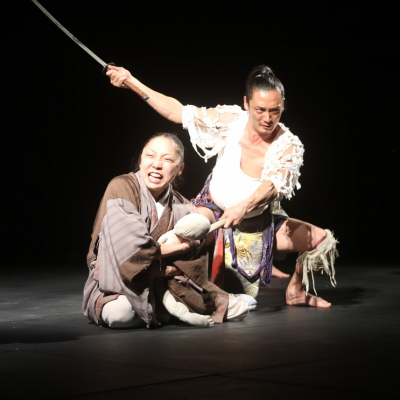The Trojan Women
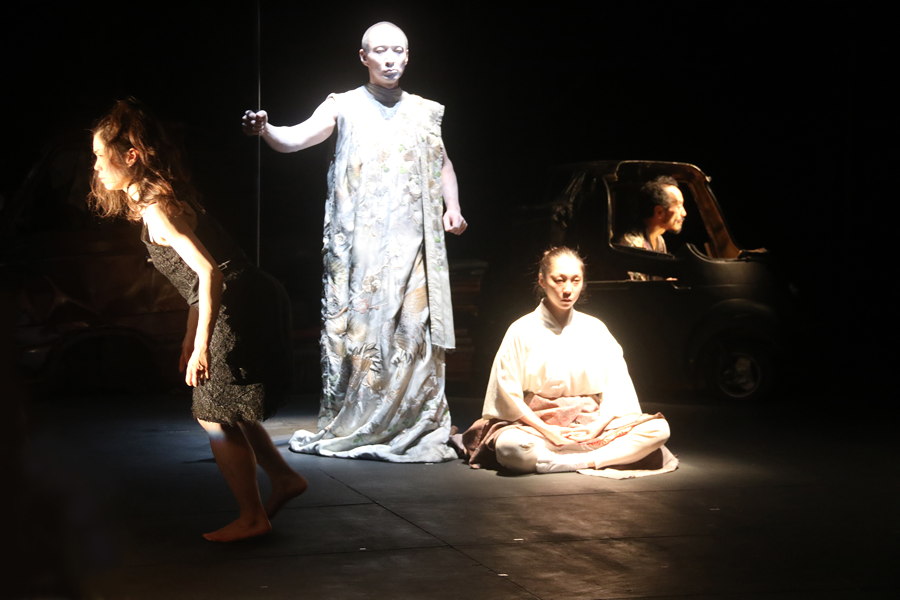
SCOT (Suzuki Company of Toga), Japan
Director: Tadashi Suzuki
Performed in Japan with Hungarian and English subtitles
1 hours 10 minutes, without breaks.
This staging is structured around a solitary old woman, sitting alone in a cemetery moments before her death, as she flashes back on the miserable fate of all families massacred by war. Their grim destiny, as evoked by the old woman, materializes on stage as the tale of The Trojan Women. For this reason, the only scenes that take place in real present time are the opening, when the old woman laments her fate to the gods, and the finale, when she pulls her few remaining household belongings out of a bundle. The text she speaks in these scenes is also taken from Euripides’ play The Trojan Women.
Tadashi Suzuki: My reasons for directing The Trojan Women are as follows
Unlike most Greek tragedies, The Trojan Women is oddly lacking in story. The key dramatic event, the fall of Troy, takes place well before the play begins. The scenes depict little more than the surviving women of Troy, gathered before the wreckage of their citadel, waiting to be ferried off to lives of slavery. As they ponder the wretched future that awaits them, their only action is a sustained lamentation of their plight. This is why some critics claim that, though the work is a “drama”, it contains nothing “dramatic”. As a theatre artist, however, I think nothing could be more dramatic than being forced to wait and imagine a wretched, unpredictable and inescapable fate. I reckon that many of us Japanese who experienced the defeat of World War II lived in a similar emotional state. It was pondering such notions that ultimately led me to choose this text. I wanted to see if, by casting the characters as Japanese survivors dwelling in the postwar ruins, I could, through their layered presence on stage, resuscitate the passions of The Trojan Women. It is my hope that, through this kind of double-exposure approach, I can reveal how our common human suffering transcends time and space, both in Japan and the Occident.
With SCOT-Suzuki Company immediately after the performance of The Trojan Women on the Main Stage. This is also the venue for the launch of Suzuki Tadashi Suzuki's book Culture in the Body with the author.
Supported by the Agency for Cultural Affairs, Government of Japan

Actors
God Statue: Fujimoto Yasuhiro
Old woman/Hecuba/Cassandra: Saito Maki
Girl selling flowers/Andromache: Sato-Johnson Aki
Samurai/Greek soldiers: Takemori Yoichi, Ueta Daisuke, Ishikawa Haruo
Old men and women/Trojans: Kito Risa, Hirano Yuichiro, Iizuka Yuki, Shin Marie,
Ogawa Atsuko
Man in a wheelchair: Kato Masaharu
Tadashi Suzuki


